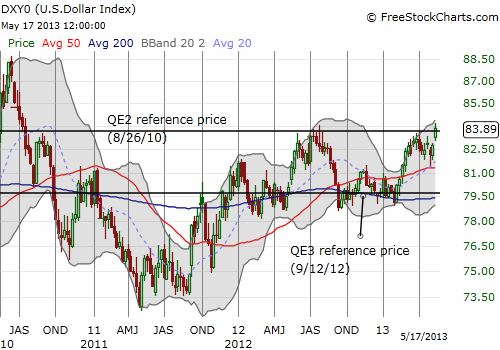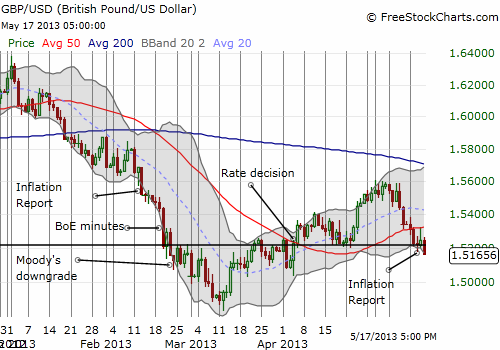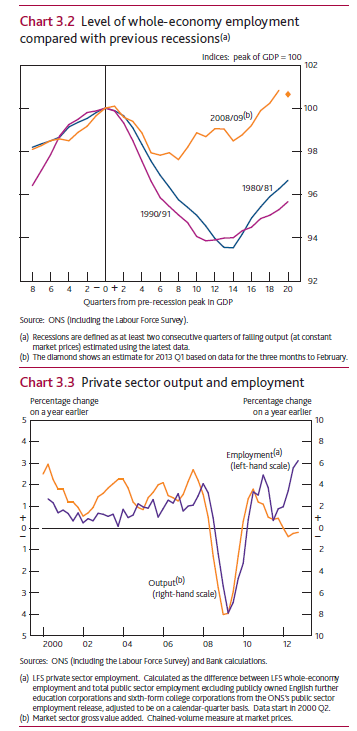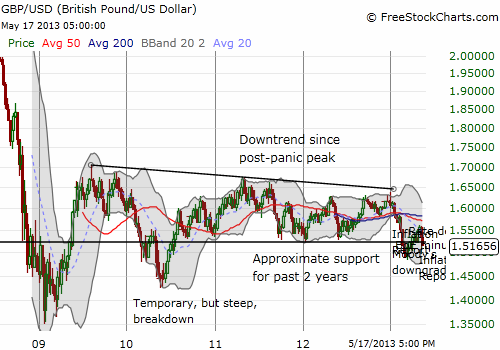(This is an excerpt from an article I originally published on Seeking Alpha on May 19, 2013. Click here to read the entire piece.)
{snip}

Traders have gotten quite bullish on the U.S. dollar. Reuters reported that bullish bets on the U.S. dollar have reached an 11-month high:
{snip}
This critical juncture for the dollar index forms an important backdrop for all currency-related trades and investments. My conclusion that the British pound (FXB) is a bargain here partly rests on an assumption that the dollar index will not rally much further from here; or if it does continue to rally, the pound will not receive much of the beating on the other end of the forex pairings.
The Bank of England (BoE) provided its latest Inflation Report on May 15th. {snip} He chose to accentuate positives alongside the on-going economic risks. His opening remarks set the tone:
{snip}
The U.S. dollar has been so strong lately that I believe the market was largely deaf to the more positive messages in this inflation report. {snip}

King’s more positive outlook comes from an expectation that 2012’s anchors on the economy, reduced output in North Sea oil and a fall in construction, will no longer drag on the economy this year or in subsequent years. In fact, subtracting these laggards, the UK’s GDP 2012 growth looks a lot like that of the U.S.:
{snip}

Source: Inflation Report, May, 2013
The upside potential in the UK economic story makes me even more bullish on the pound now. {snip}
{snip}
The discussion of scenarios with higher rates really grabbed my attention (and this is my eventual bridge to a discussion about gold). I was particularly struck by the frank discussion of the consequences of higher rates in the future:
{snip}
In other words, this period of low rates does not simply facilitate aggregate demand, it also gives consumers the time and cushion to reduce debt levels…even while it, ironically or paradoxically, reduces the incentive for lowering debt levels. {snip}
Be careful out there!
(This is an excerpt from an article I originally published on Seeking Alpha on May 19, 2013. Click here to read the entire piece.)
Full disclosure: net long the British pound

